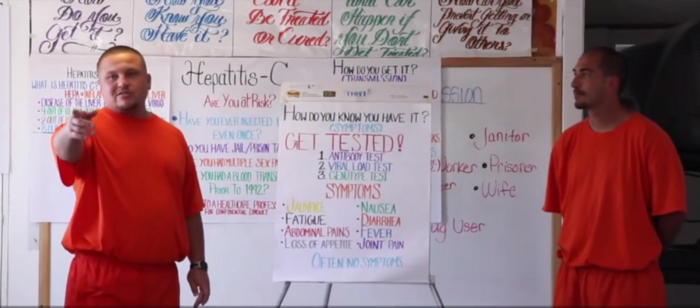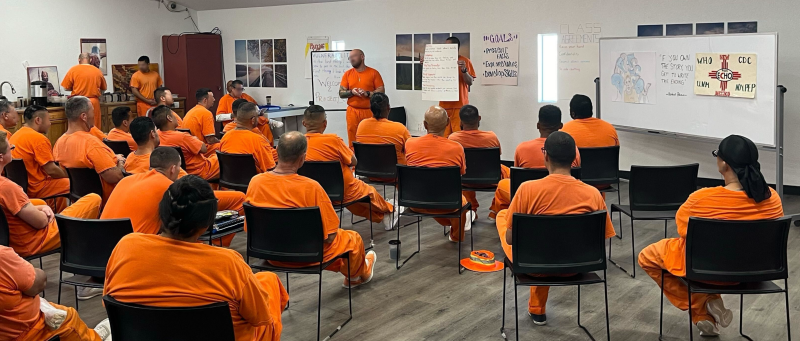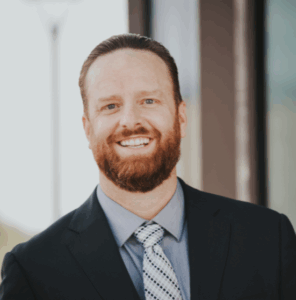Behind the walls of Roswell Correctional Center, three incarcerated people explain to their peers how to avoid getting hepatitis C. They review the risks of needle-sharing and drug use. They talk about what happens to people who contract the disease and review treatment options. The men leading the training, who completed a 40-hour course, are educators in Project ECHO’s New Mexico Prison Peer Education Project.
Launched more than 15 years ago, the program teaches incarcerated people how to stay healthy and to provide information on key health issues, such as substance use and navigating the prison health system.
From Inmate to Advocate
Year after year, the program has been successful with thousands of inmates benefiting from the classes.
“Being a peer educator gave purpose to my everyday life beyond serving my sentence,” says former participant Daniel Rowan. Rowan, one of the program’s first peer educators, was incarcerated for three and a half years. Now, he’s the senior manager of the PEP program. PEP, he says, has changed his life.
“Prison health is community health,” said Dr. Karla Thornton, who launched the program in partnership with the New Mexico Corrections Department. “Ninety-five percent of people in the criminal justice system will be released back into their communities. If they unknowingly contract hepatitis C while in prison, that can spread quickly when they return home. That’s why educating inmates on disease transmission and prevention is important to everyone.”
Health Education with a Bigger Purpose
The ECHO Model allows participants to collaborate, share stories and solve problems together. Peer educators learn about common infectious diseases, drug addiction and more. Beyond health education, participants receive public speaking and group facilitation training that helps them prepare for a career outside prison.
“In prison, you’re always afraid of losing time, but I wasn’t. Instead, I was gaining professional skills and confidence that would help me start a career — all while providing service,” says Barry Ore, who participated in the NM PEP program. “That gave me hope for having a life after prison.”

Peer educators in the New Mexico Peer Education Project lead a class on health awareness, equipping fellow inmates with crucial knowledge to reduce risky behaviors and promote overall well-being.
“We are equipping inmates with real hands-on knowledge,” says Saúl Hernández, who served as a health educator with the program. “We see inmates leaving the correctional facilities, ready for the workforce and the new challenges ahead. Their whole mindset is different.”
Through the program, incarcerated people gain knowledge, respect, autonomy and purpose. They leave prison with accomplishments, new professional skills and a confidence in their future that many never could have imagined.
“If Project ECHO and the New Mexico Prison Peer Education Project hadn’t given me a chance, I don’t know where I’d be today,” says former participant Carissa Holloway; today, she serves as a senior program manager for the NM PEP.
Project ECHO believes in the power of knowledge to transform lives—inside and outside prison walls. Learn how we’re training the next generation of peer educators and creating healthier communities for all. Explore Project ECHO’s work in correctional health.
Featured Image: A New Mexico Peer Education ECHO Program at the Roswell Correctional Center. Faces blurred for privacy. Photo Credit: Chaplin Brazil, NM Corrections Department, 2023.
Originally published in September 2017, this story was updated in November 2025 with additional links, a new featured image, image credit information and roles for the spokespeople.



